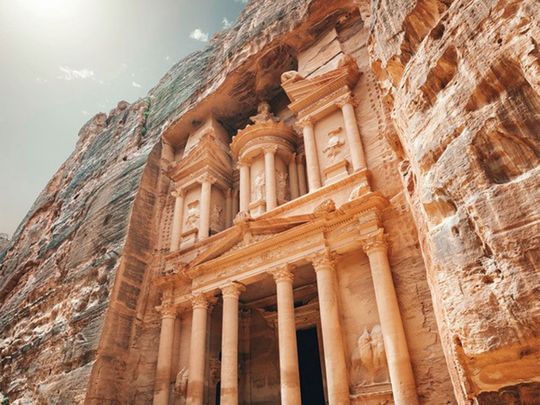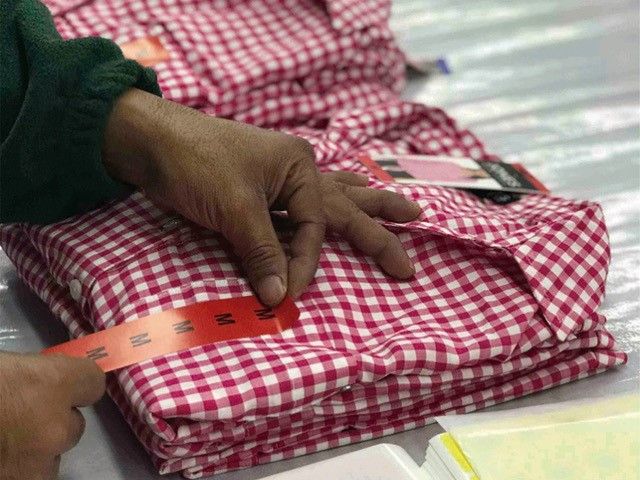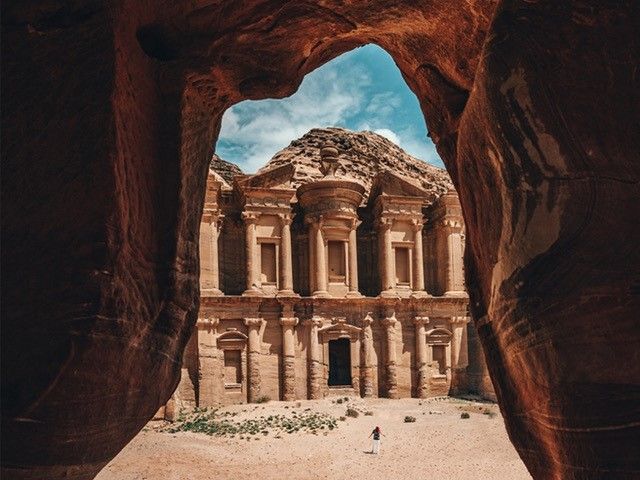
Last year, the Kingdom of Jordan announced a historic reshuffling of its investment policies and governing bodies designed to steer the country in the direction of greater interdependency and a more prominent role in a globalised world. Heading this effort was the creation of a new Ministry of Investment, entrusted with enlarging the nation’s potential as an investment destination and led by experienced corporate banker Khairy Amr.
“Our idea is that Jordan is not limited by its landmass, but it is also an optimal gateway into a region and a world in a moment of transition," he explains. With a near-perfect climate for renewable energies, well-developed infrastructure and tele-communications, a well-educated, English-speaking workforce, and enviable geographic location, Jordan is already showing it can be a top player on the world stage, and that its potential is limitless.
A Robust Banking Sector
With 25 national and international banks operating in the country, a modern Stock Exchange, and a comprehensive legal framework, the Kingdom of Jordan today enjoys a robust and promising financial sector. The banking sector has proved resilient in the face of setbacks in trade caused by the global Covid pandemic and has been able to maintain a wide array of businesses, investment, and retail services which are expected to show positive results in 2022, with the World Bank projecting an overall 3.2 per cent economic growth rate. With the government now turning its attention to green and digital expansion as it moves forward on its successful economic development agenda, the financial services sector is expected to benefit greatly from new foreign investment targeted to support double-digit growth in trade.
Among the institutions leading the way forward is the Jordan Kuwait Bank. With over 45 years of experience in corporate lending and private sector higher-end salary customers, the Bank took the risk of veering into the SME sector in 2018, as a way of tackling the country’s employment challenges. According to CEO Haethum Buttikhi, the move was largely successful and was responsible for securing the bank’s leading position in the region. “It forced us to develop a diversified portfolio as well as to become an active, positive influence on the economy," he explains. This year, by signing a $120 million agreement with the EIB for lending to actors in the SME sector hit by the Covid pandemic, the bank is leading the way forward towards a more customer-centric, digital banking experience, and has completely revamped its mobile banking, corporate and digital platforms, with significant investments on digital development.
An equally important actor in the sector is Capital Bank. Originally founded by a prominent Jordanian business family as the Export and Trade Bank, a corporate bank focusing on trade in Jordan, Capital Bank has managed to become one of the most promising new players in the banking sector not only of the country, but of the region. Investing heavily in acquisitions over the past three years in order to grow its market share, Capital Bank has not only managed to acquire Audi Bank but has now made a move to acquire Société Générale as well, which will put it in the top three largest banks in the country. With 26 years of experience in the sector, CEO Dawod Al Ghoul is confident the bank is only getting started: “We closed last year at 30 million JD, and we’re expecting to show solid growth by the close of 2022.”
A Textile Land of Dreams
Amounting to 25.2 per cent of Jordan’s total exports, the textile industry is indeed a key axis of the country’s economic future. Among its most prominent players is Hi-Tech Textile, a company focused exclusively on casual bottoms manufacturing, designing, embroidery and dry & wet processes and applications. It operates based on a scientific style of planning and control, so that production space is booked and tailored to customers’ requirements as well as to the nature of the product. “Making a garment used to be a tailoring job, but to-day it is an engineering of its own," says CEO Ali Imran, whose company now supplies garments for the top eight golf brands in the United States. After taking a tough hit with the pandemic, in which production dropped by nearly 30 per cent, the company was quick to get back on its feet. In 2021, it returned to its pre-pandemic levels, with turnover of $72 million and an expected growth of at least 20 per cent per cent for next year.

Another key actor in the sector is Classic Fashion, which runs 22 factories in Jordan, employs over 30,000 workers and hit the target sales turnover of 800 million in 2021, a number that should reach the billion mark this present year. It is the largest garment manufacturer in the MENA region and among the top 20 in the global industrial map. According to Managing Director Sanal Kumar, the decision that made it all possible was establishing in Jordan. The nation’s Free Trade Agreements with the US, Canada and EU are doors to the global market, especially in combination with a legislation that favours foreign investment, business development and safe migration of workers. Indeed, conforming 46 per cent of Jordan'ss 1.7 billion textile industry, Classic Fashion is living proof of a company ready to reach for the stars.
The Future of Global Tourism

With a staggering 7 million visitors in 2019, before the Covid 19 pandemic reduced world tourism by 70 per cent, Jordan is not only returning to its former numbers, but it is gearing up to go far beyond and reach its true potential. From boutique wellness camps in the desert such as Palmera Camp, to luxury hotels, resorts and massive real estate projects in the cities, the country has been working tirelessly in bringing all its lesser-known wonders to the level of its now world-famous destinations, such as its capital, Amman, the coasts of the Dead and Red Seas, and the ruins of Petra, the jewel in the crown of Jordanian historical sites.
In the capital, Amman, perhaps the most renowned hotel is The Grand Hyatt, overlooking the historic district from one of the capital’s famous seven hills. With its distinctive pink stone façade, the Grand Hyatt offers sweeping 360-degree views in which the visitor may catch sky-scraper horizons, the dome and minaret of King Abdullah I Mosque, or one of the most breath-taking sunsets that nature has to offer. With 311 rooms and 16 private suites, it can host numerous guests while giving each and one of them the sense of a unique experience.
And in the heart of Abdali, the capital’s modern, vibrant sector, is The Boulevard Arjaan, a true example of what five-star hospitality should be: a seamless and effortless experience at the centre of which is only you. With 390 luxurious apartments showcasing modern interior designs and lavish furniture, and ranging from studios to four-bedroom penthouses, the Arjaan is one-of-a-kind. Two signature restaurants with stylish outdoor terraces overlook the pedestrian strip are there to please your senses and offer a gateway into a country that the world has yet to experience in its full glory.













